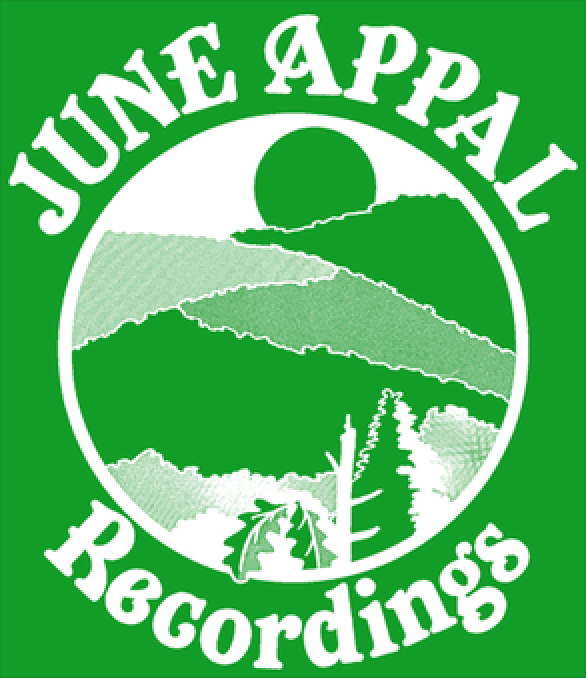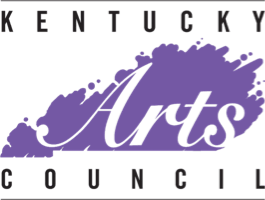Making art + media in the mountains since 1969.
Our state-of-the-art, climate-controlled vault holds thousands of hours of recordings, as well as photographs and print materials that — together — span almost a century of life and history in Appalachia.
Appalshop's professional archive embodies the core purpose of Appalshop itself —
cultural preservation, perpetuation, transmission, and exchange.
Our professional archive grew out of the need to preserve our own work, as well as out of the same mission that drove us to produce so much of our art and media in the first place: the desire to record and amplify life in Appalachia.
The depth and sheer variety of our collections represent the rich diversity of this region, and they provide a unique perspective on regional identity writ large.
In the course of making theater and films, putting out records, and producing radio, Appalshop mediamakers documented some of the most vital standard-bearers in the region: authors like James Still, musicians like Ralph Stanley, and ballad collectors like John Jacob Niles.
Our audiovisual records also include ordinary people, from coalminers to lawyers, national politicians to local sheriffs, senior midwives to teenage basketball players.
In fact, Appalshop’s professional archivists have proactively collected and preserved an untold number of family heritage items from local residents in Eastern Kentucky — everything from photos to glass plate negatives to heirloom fiddles — and coordinated workshops empowering laypeople to preserve their own materials, too. We know how community-based storytelling and archiving can support a spirit of self-worth that contributes to a sense of place, and Appalshop’s archive has actively cultivated opportunities to amplify the voices of people here in our own community.
Film & Video
Appalshop’s archive was formally established in 2002 to safeguard and improve access to the art and media that Appalshop producers had been creating since our founding in 1969.
One of our immediate priorities was to rescue our audiovisual media from permanent loss. Forty-nine of Appalshop’s 100+ documentaries were shot and edited on the obsolete formats of 16mm acetate picture film and magnetic audio tape (known as “double system” recordings, later synched in editing).
Through an expensive, specialized photochemical process, our archivists worked with professional film labs to make new copies on fresh film stock from the original picture and sound masters. To date, 33 of our 49 “film-born” documentaries have been preserved in this manner, not only ensuring their longevity, but enabling us to replace outdated access copies with new digital versions that the public can access.
But caring for Appalshop’s films is just one part of the archive’s artistic legacy. Our film and video collections consist of over 1,800,000 feet of 16mm, super 8 and 8mm film. If we stretched it all out from our main building in Whitesburg, Kentucky, we could reach Nashville, Tennessee and still have some to spare.
Measured another way, our film and video collections add up to 4,000 hours of footage, shot on 1/2-inch open reel, ¾-inch Umatic, Betacam, Hi8, MiniDV and DVCAM. The material covers all aspects of life in central Appalachia, including coal mining, labor strikes, religious practices, out-migration, farming, traditional folk arts, musicians, storytellers, politics, and environmental activism.
Audio
With both a record label and a radio station here at Appalshop, our archive’s major audio collections run the gamut from oral history to music. Audio interviews recorded for Appalshop films often stand on their own as historically and culturally significant, and it’s not unusual to hear the voices of Appalachian legends along with ordinary residents ring out from ½ and 1/4 -inch open reel, audiocassette, and DAT.
Also in our collection are 25 years of interviews, tapes of news events, public forums, and “air checks” of programming created by over two hundred volunteer DJs since 1985 at Appalshop’s radio station, WMMT 88.7 FM. We have tapes of some of their award-winning nationally distributed productions on regional, economic and social issues, and even the first iteration of the ongoing WMMT public affairs program “Mountain News and World Report.”

Much of the music in our audio collections, meanwhile, comes from Appalshop’s record label, June Appal Recordings. The master tapes of over 70 releases from 1973 to the present contain some of the world’s best examples of Appalachian traditional music — a genre that has been foundational to the development of American popular music, as well as being sonically pleasing in its own right. We see conserving and preserving this great body of work as part of our mission, along with recordings of musical performances that have taken place here at Appalshop.
Our annual music festival, Seedtime on the Cumberland, is a summer staple for old-time and Americana music, and Bluegrass Express Live from WMMT 88.7FM has periodically brought live bluegrass to the Appalshop theater. With recordings of tradition bearers who are now deceased alongside legends still alive today, our audio collections include archival audiotapes of over a hundred regional musicians both live and in studio.
Equally fascinating are the audio items that were donated to us. For example, a sociologist named John Verburg donated 52 microcassettes and regular audiocassettes to our archive of Black oral histories from coal camps like Wheelwright and Jenkins, Kentucky. The tapes date from the early 1980s to 2000s, and they join other oral histories Appalshop staff collected from Black miners and families in the region.
Photographs
Because physical media formats can deteriorate if not given special care, we built a state-of-the-art, climate-controlled vault for stabilizing 16mm film, video and audio tape, and photographic materials.
Appalshop’s archival holdings include thousands of photographic prints and negatives, and, like the rest of our collections, they come from all kinds of places — our own programs, mediamakers, and staff, as well as local and regional donors.
Many of our donated photographs date from the mid-20th century, like the Robert Gumpert Harlan County collection from 1974, the Kristin Mendenhall Eastern Kentucky collection from 1971, and the 1970s Nancy Rudolph Eastern Kentucky collection.
But our archive also has preserved much older photographs: for example, we have over 3,600 negatives from a commercial photographer named William R. “Pictureman” Mullins, born in Dickenson County, Virginia in 1886.
Mullins spent most of his life in Jenkins, Kentucky, where he photographed all kinds of people with his tintype camera and traveled by foot or bicycle, announced en route by people who cried, “The pictureman is coming; here comes the pictureman!”
Mullins’ photographs of weddings, funerals, baptisms, school plays, and even union organizing paint a picture of life in early 20th century Appalachia. His subjects were young, old, black, white, immigrant, and indigenous alike.
Paper & Objects
Along with audiovisual recordings and photographs, Appalshop’s archival collections also include lots of paper records and material ephemera. Much of them document Appalshop itself: our earliest board meeting minutes, project files, accounting and sales records, and fliers for Appalshop events are all in our collections.
Usually most exciting to fans of Appalshop art and media are the original artwork for product releases and early movie posters for our films that we’ve preserved. We also have many of the production logs, play scripts, and promotional materials that are part of the film production process: the subject of “His Eye Is On the Sparrow” posing with two women involved in the film; a hand-drawn sketch of Nimrod Workman from the film that bears his name; the movie poster for “Big Lever.” For the Appalshop’s “Hand Carved,” we even have the 8-legged rocking chair that Chester Cornett constructed in the film.
Appalshop’s home county, Letcher County, is well-represented in our archive, too. We house The Mountain Eagle/Tom and Pat Gish Papers collection that contains just shy of half a century’s records of the influential Eastern Kentucky newspaper. Under the unifying name “Youth Bored,” we have over a dozen fliers from punk shows from the late 1990s and early 2000s — many of them hosted across the street in Appalshop’s Boone Youth Media and Drop-In Center. As part of Appalshop's NEH Common Heritage project, we have preserved over 90 items from Letcher County residents, everything from funeral announcements to political campaign cards.

















